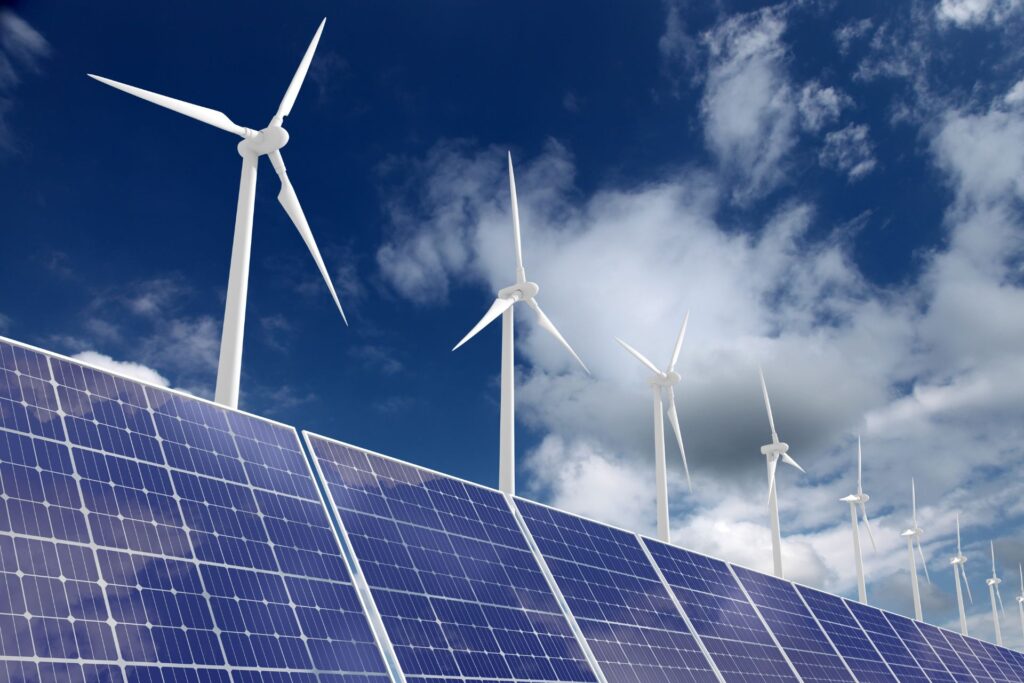Estonia Accelerates Green Energy Shift, Embracing Renewables Over Oil Shale

|
Listen to this story:
|
Accelerating growth of wind and solar PV while increasing electrification and encouraging uptake of low-emissions transport are vital areas for country’s energy transition
Estonia’s ambitious targets for a climate neutral economy by 2050 highlight the country’s commitment to the energy transition, but a quicker phase out of oil shale use in electricity generation and streamlining permitting for new renewable energy projects are essential to realise these goals while maintaining energy security, according to a new in-depth policy review by the IEA
The report commends Estonia for its progress on reducing greenhouse gas emissions as the country’s shift away from fossil fuels to renewables such as wind, solar PV and biomass yields results. However, the report finds that emissions have been on the rise since 2020, primarily due to an uptick in the use of shale oil in electricity and heat generation, while land use and forestry have become a net source of emissions.
Since the last IEA review in 2019, Estonia has created a new Ministry of Climate with wide-ranging authority over energy-related policies and responsibility for starting work on a climate law. Its remit includes overseeing the country’s two flagship targets for 2030 and 2050 to ensure renewables meet 100% of annual electricity demand and to achieve climate neutrality respectively. While this will require significant investments and interim progress assessments, the latest IEA report found that putting in place the institutional and legislative architecture will help provide the policy clarity for private sector participation and coordinate the broad suite of actions needed to meet Estonia’s climate and energy ambitions.
The report recognises that Estonia, like other countries in the region, is facing challenges following Russia’s invasion of Ukraine. Estonia has taken decisive action to end all remaining energy trade with Russia while safeguarding regional energy security and maintaining progress on the energy transition. It has already taken steps to ensure regional gas security while working to reduce its natural gas demand and bring down emissions in its gas supply, including by increasing biomethane production.
“Estonia is making great strides to reduce its reliance on oil shale and boost deployment of wind and solar generation” said IEA Deputy Executive Director Mary Burce Warlick. “It now needs to build on this success and accelerate the energy transition by aligning fiscal measures with its medium and long-term energy and climate goals. It is important that such action is taken with a people-centred transition in mind. The IEA is committed to continuing to work with Estonia to achieve its energy transition goals.”
As next steps, the report provides a series of recommendations for further emissions reductions in electricity, transport and across all sectors. This includes putting in place clear policies, market regulations and incentive schemes for renewable energy deployment, as well as cutting red tape for permitting to ensure that developers of wind, solar and other technologies can deliver projects on time and on budget. In transport, the report recommends introducing price signals to point consumers toward more energy-efficient vehicles including electric ones. Actions such as updating energy excise duties, increasing carbon prices, ending fuel subsidies and introducing vehicle taxation to phase out the most polluting forms of transport on the road would go a long way to lowering emissions in the sector.
Related Article: TotalEnergies, Baker Hughes, Technip Energies, and Azimut Invest in Zhero Europe’s Green Energy Expansion
A European technology hub, Estonia will have an important role to play as a leader in energy sector digitalisation that can serve as a template for other countries, according to the report. And being home to one of Europe’s few processing facilities for rare earth metals, the country has the potential to be a strategically significant partner in the critical minerals supply chain. The report also highlights areas where Estonia’s leadership can serve as an example for aspects of secure clean energy transitions by promoting best practices among countries to foster knowledge sharing, capacity building and political buy-in for a sustainable and affordable clean energy future.










